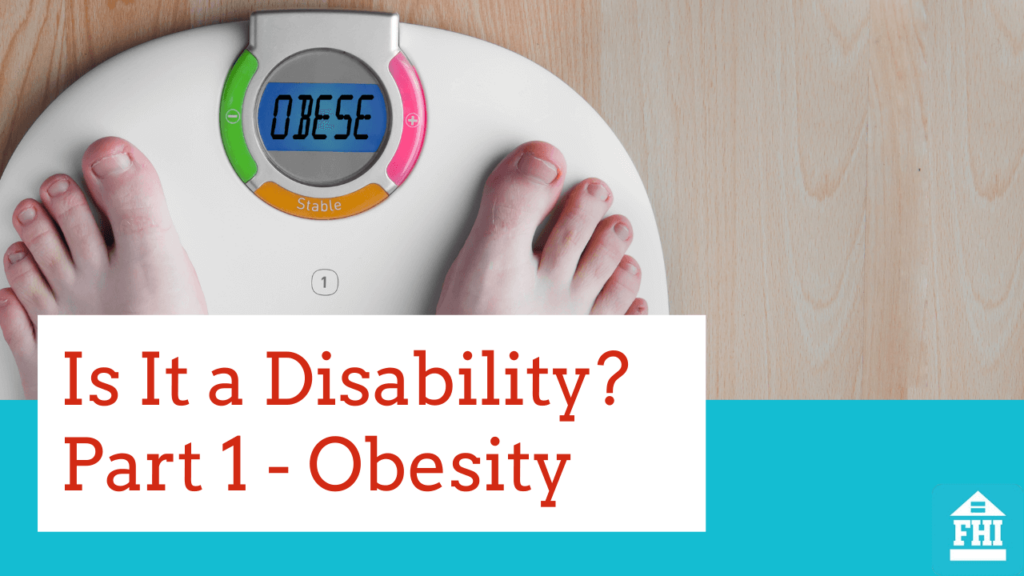Obesity is a growing health concern around the world, with an estimated 1.9 billion adults classified as overweight and 650 million of them considered obese. In recent years, there has been a debate as to whether obesity should be classified as a disability. The issue is complicated and can carry fair housing implications. In part one of our new series, Is It a Disability?, we will focus on the topic of obesity.
Estimated reading time: 3 minutes

Table of contents
Consider the following scenario; a property manager overhears a leasing professional tell a prospect that the unit they looked at was no longer available when that wasn’t really the case. When pressed, the other leasing agent admits that he told the prospective resident that there were no available units due to the person being obese. He tries to validate his actions by stating problems the property encountered with a past obese tenant, along with his concern that the new prospect seemed to struggle on the stairs and had already made a request for modifications like grab bars. If you overheard this conversation, what would you do? What are the potential liability and fair housing issues here? Let’s break this scenario down and consider the following questions.
We know that obesity is not a protected class. But looking at this scenario, what issue—if any—do you see?
The first thing that we need to remember is that the definition of disability includes what someone thinks or perceives as a disability. So based on this scenario, the conversation included elements that showed the leasing agent viewed the prospect’s obesity as a disability, i.e., her trouble with stairs and the need for reasonable modifications.
What if a tester overheard this or another employee shared this conversation? Both situations would leave the agent and the property liable and in violation of the Fair Housing Act.
Is obesity a disability, and if so, what should the leasing agent have done differently?
The definition of disability is a mental or physical impairment that substantially limits one or more major life activities. Based on the perception of the leasing agent, this individual was disabled. However, this is where things went sideways. We need to remember that it is never up to us as housing providers to determine if a person is disabled or not. And clearly, if this person is disabled, then the actions of this leasing agent are discriminatory and against the law.
If the agent were to offer her a unit, would it be improper to only offer units on the first floor due to her difficulty climbing stairs?
Again be careful with making assumptions. Only offering units on the first floor could be viewed as illegal steering. The safe way would be to offer the prospect a choice of the units available. If there only happens to be units on the second floor, allow the prospect to decide whether or not they are going to take it.
In conclusion, the debate over whether obesity should be classified as a disability is complex and multi-faceted. Regardless, it can have fair housing implications and highlights again why training and education are imperative to avoid a fair housing claim.
You May Also Like:
